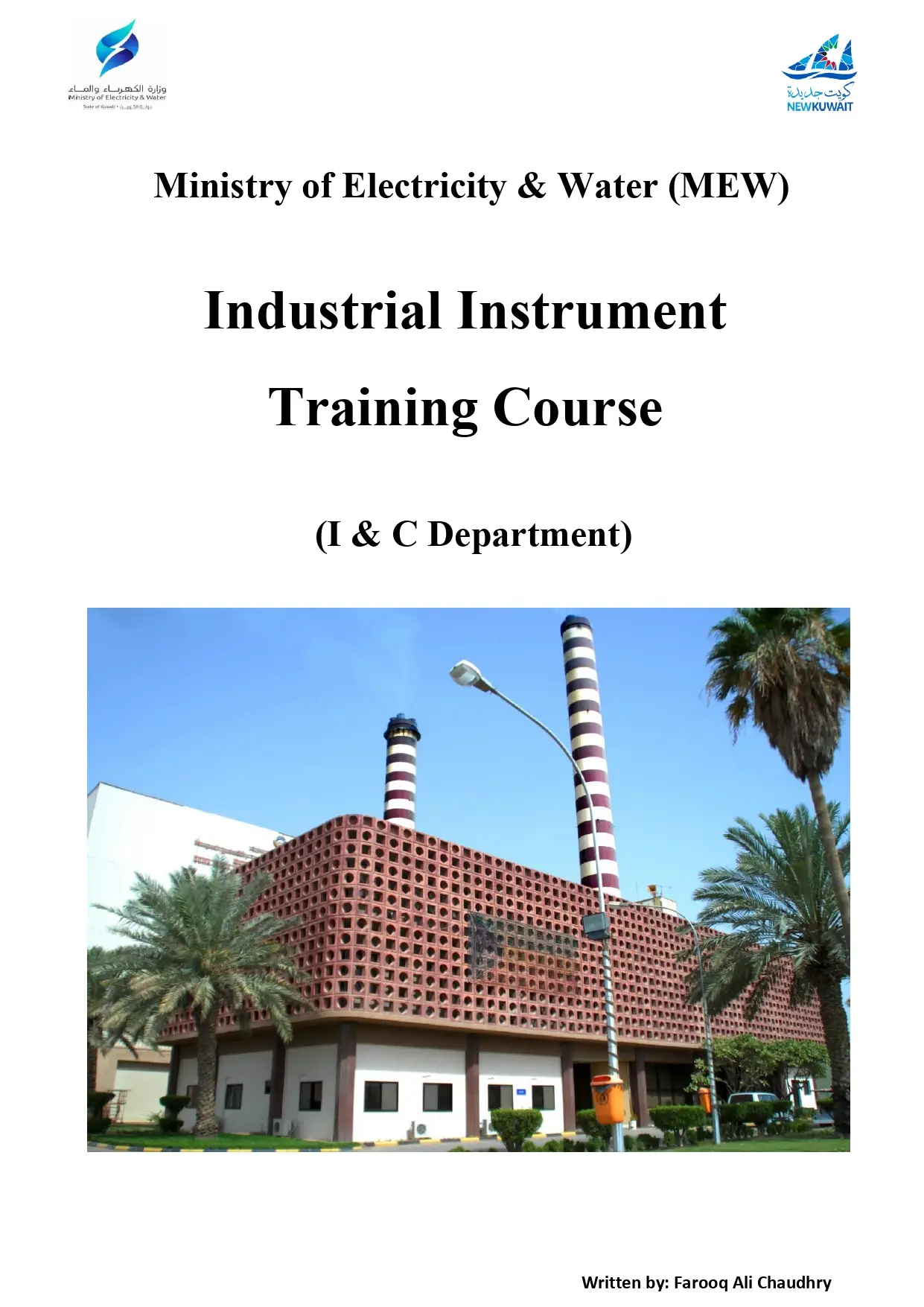Electrical & Automation, Industrial Water & Wastewater
Industrial Instrument Training Course
Industrial Instrument Training Course
Source: https://www.mew.gov.kw
Prepared By: Farooq Ali Chaudhry
Only logged in customers who have purchased this product may leave a review.



Reviews
There are no reviews yet.